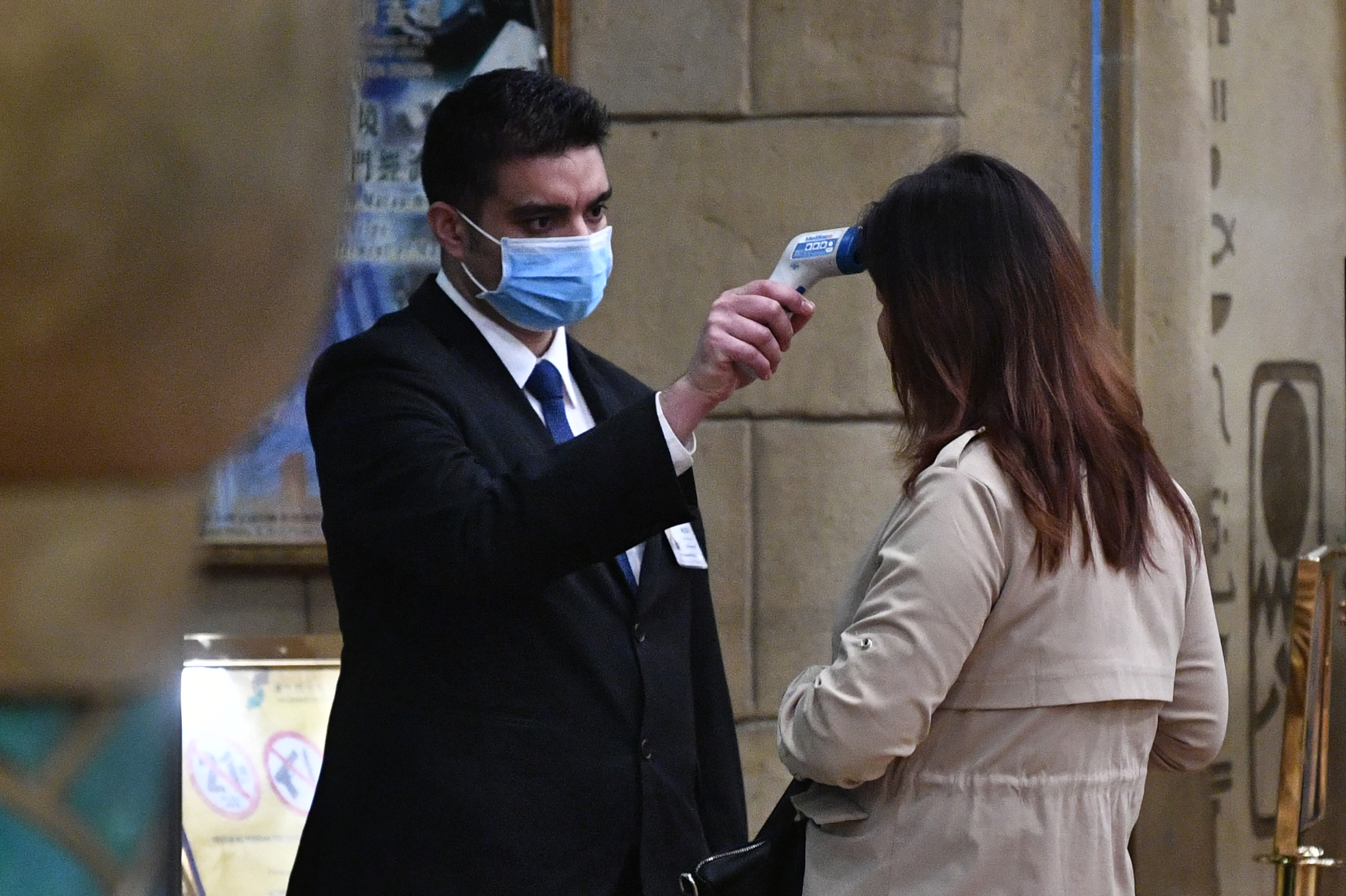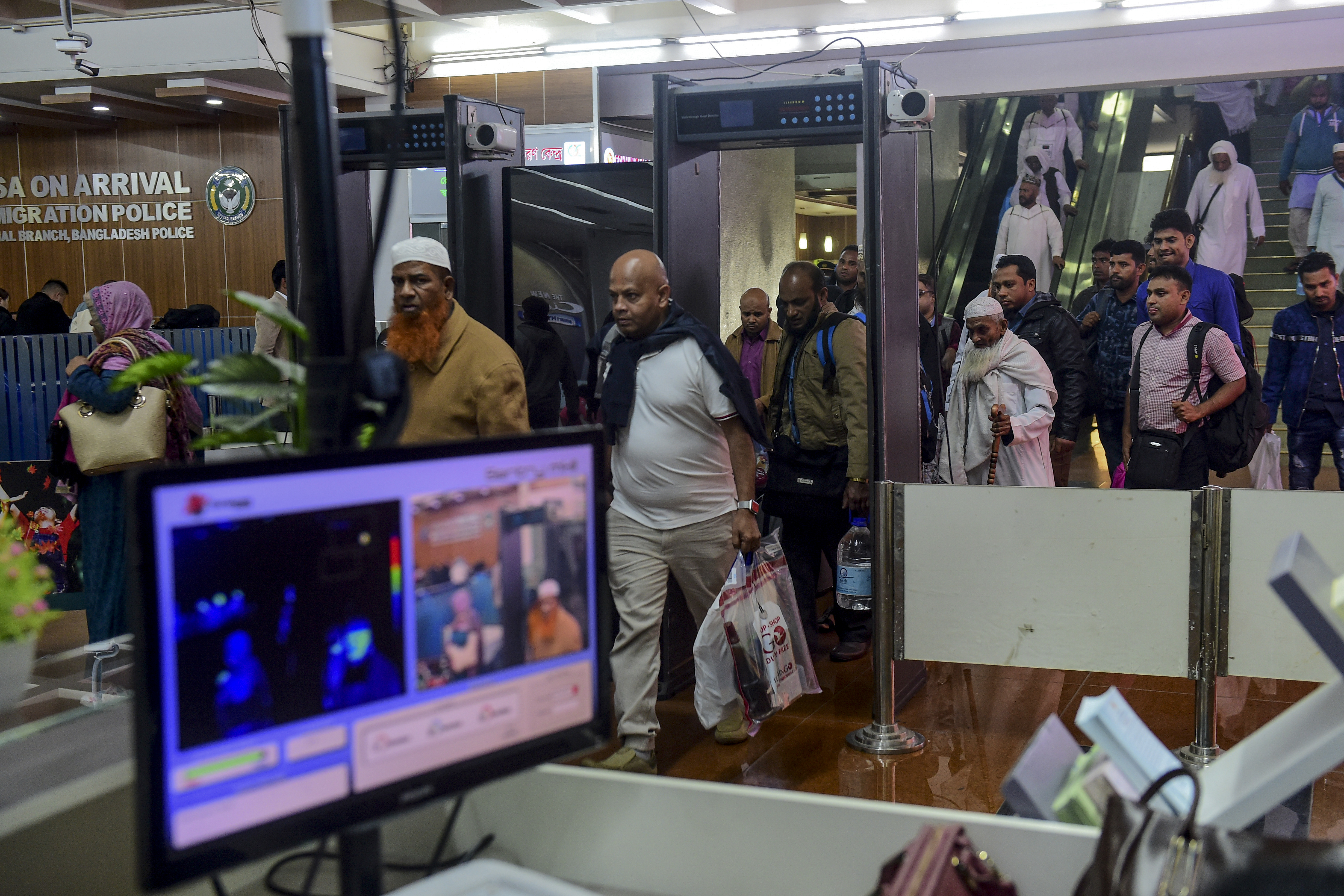Global health emergencies: A rarely used call to action
WHO is holding emergency talks Thursday in Geneva on deadly virus outbreak in China
January 22, 2020 01:00 AM

The World Health Organisation (WHO) is holding emergency talks Thursday in Geneva to decide whether a deadly virus outbreak in China constitutes a "public health emergency of international concern".
The designation is rare and only used for the gravest outbreaks which are considered "serious, sudden, unusual or unexpected".
The classification would imply that the disease, which has killed nine people so far, risks spreading further internationally and requires an international response.
The terms are set out in the International Health Regulations that were adopted following heavy criticism of the way in which the outbreak of SARS (Severe Acute Respiratory Syndrome) was handled in 2003.
The responsibility of making the determination rests on WHO Director-General Tedros Adhanom Ghebreyesus, and it gives him the power to issue recommendations that countries must act on, such as travel bans.
Once declared, the designation is reviewed every three months by the WHO's Emergency Committee, a group of international experts.

Used five times
The public health emergency designation has only been used five times since the new system took effect in 2007:
2009 - "Swine flu" (H1N1 pandemic): The WHO declared a public health emergency for the first time on June 11 -- about six weeks after the virus was first recognised in Mexico and Asia.
It triggered a rash of costly emergency measures to guard against infection and a rush on doctors in some countries, but public concern about swine flu fizzled out later in the year as it proved to be less severe than feared.
The emergency categorisation was lifted in 2010 after the pandemic had killed around 18,500 people.
The virus continues to emerge in winter and is part of a group of seasonal flus that kill thousands every year.
2014 - Polio: Issued on May 5, 2014, this emergency declaration was a response to a resurgence of the crippling disease, including in Afghanistan and Pakistan.
The WHO said there was evidence that the virus, which affects mainly children under the age of five and had long been thought on the road to extinction, was spreading to countries such as Iraq and Syria.

The Emergency Committee this month extended the measures for another three months.
2014 - Ebola: The first suspected cases were detected in Guinea in late 2013, and outbreaks were confirmed in Guinea and Liberia in March 2014. But the WHO only declared a public health emergency on August 8 following cases in Europe and the United States. WHO was heavily criticised for the delay.
In total, about 11,000 people died of the disease -- mostly in Guinea, Liberia and Sierra Leone.
The virus is highly contagious and has an average fatality rate of around 50 percent. It spreads only through close contact with the blood, body fluids, secretions or organs of an infected person.
The emergency designation was lifted in March 2016.
2016 - Zika: Issued on February 1, this was the first time the designation was declared for a mosquito-borne disease. The virus, which takes its name from a Ugandan forest where it was first identified in a monkey, can also be spread through sexual contact.
Zika is a particularly high risk for pregnant women as it can cause congenital abnormalities such as microcephaly, a birth defect that leaves the baby's head smaller than normal.
The declaration was lifted in November 2016.
2019 - Ebola: After months of pressure, the WHO on July 17 declared the Ebola outbreak in the Democratic Republic of Congo an international public health emergency. The Emergency Committee said the risk of global spread was "still low" but there were "worrying signs of possible extension of the epidemic".
According to the latest toll, more than 2,230 people have died of the disease in this latest outbreak -- the second worst after 2014.




 Yet another burden on people: Govt hikes oil prices
Yet another burden on people: Govt hikes oil prices Public reacts to Bohemia's music video ‘Salsa’ starring Sistrology
Public reacts to Bohemia's music video ‘Salsa’ starring Sistrology Saudis offered PIA, airports, joint ventures to build five-star hotels
Saudis offered PIA, airports, joint ventures to build five-star hotels Finance minister rules out further rupee devaluation
Finance minister rules out further rupee devaluation Post-mortem report says woman’s death caused by her falling off train
Post-mortem report says woman’s death caused by her falling off train Hamari Mulaqat: Bushra Ansari opens up about divorce and 2nd marriage to Iqbal Hussain
Hamari Mulaqat: Bushra Ansari opens up about divorce and 2nd marriage to Iqbal Hussain




